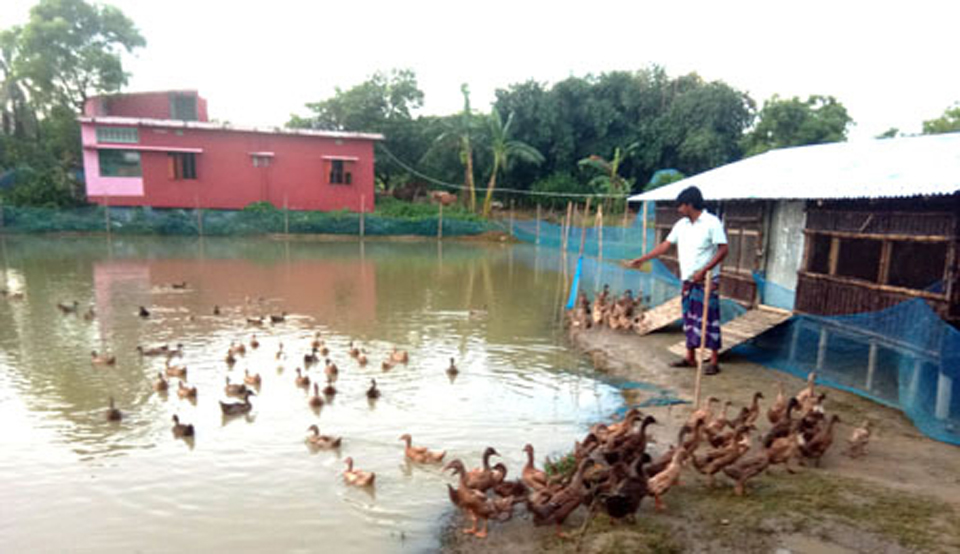
RAJSHAHI, Jan 5, 2023 (BSS)- Integrated fish farming with poultry birds, vegetables and fruits has been gaining popularity in the region for the recent past years contributing a lot towards meeting up the gradually increasing demands of fish and vegetables.
Many of the fish farmers set up small-scale poultry farms and vegetable gardens surrounding their ponds as they get extra income from the integrated farming.
Altaf Molla said he has four big size ponds with 80 bigha of water. He has established chicken and duck farms and vegetable gardens in surrounding areas. He supplies live fish to Dhaka by truck regularly.
Altaf , a fish farmer of Boilsingh area under Bagmara Upazila, earned around Taka one crore from farming during the last around 15 years besides creating employment opportunities for many people.
Golam Saklain of Durgapur Upazila has integrated fish farming in more than 1,320 bigha of water bodies and contributes to bolstering local economy.
Ashraf Ali of Bardhanpur village under the same upazila has earned success through integrated fish farming in 20 ponds for the last around 15 years. He set up a fish feed factory in his locality with his earnings.
General Secretary of District Fish Farmers Association Sohrab Hossain here told BSS that the farmers are being habituated and interested in modern fish farming leaving behind the conventional method.
There is no alternative to come out from the conventional practice to produce safe and chemical-free fish, he opined.
District Fisheries Officer Jahangir Alam told BSS that around 84,000 metric tons of fish are produced from around 48,427 water bodies in the district. But, the demand of fish in the district is about 66,000 tons.
After farming fish, many people both urban and rural have become rich in the district. He says the matter of selling live fish in Rajshahi markets has created a new dimension as those are being transported to many other districts from here.
In order to meet the increasing demand for food, there is a need to increase fruit, vegetables and fish production in the region. To this end, integrated fish farming has a great role.
Although integrated fish farming increases the supply of food, this type of farming has not yet been attempted on a large scale here, said fish farmer Sohrab Hossain.
It is, therefore, suggested that integrated fish farming should be extended with the help of government organizations, NGOs, donor agencies and other key stakeholders.
In order to increase food supply, utmost emphasis should be given on promoting integrated fish farming ventures throughout the region.
It is also necessary to provide institutional and organizational support, training facilities and technical support for sustainable integrated fish farming.
Sohrab Hossain said training and technical support would help to increase the knowledge of farmers, improve productivity and reduce risks.
The prospects for integrated fish culture development in the region are considerable but determination is required to exploit the potential fully. A range of public and private sector investments and initiatives are needed to realize the potential for growth of this integration.
Public-private partnerships offer potentially important opportunities for pro-poor agricultural development. Such collaborations have already contributed to food security in many developing countries.
Moreover, applied research in areas such as small indigenous fish farming in wetlands may need to be given particular attention, considering nutritional benefits among household members including children and women.
In addition, further research would be required on social, economic, environmental and livelihood issues for the adoption of integrated fish farming in rural areas, the fish farmer added.